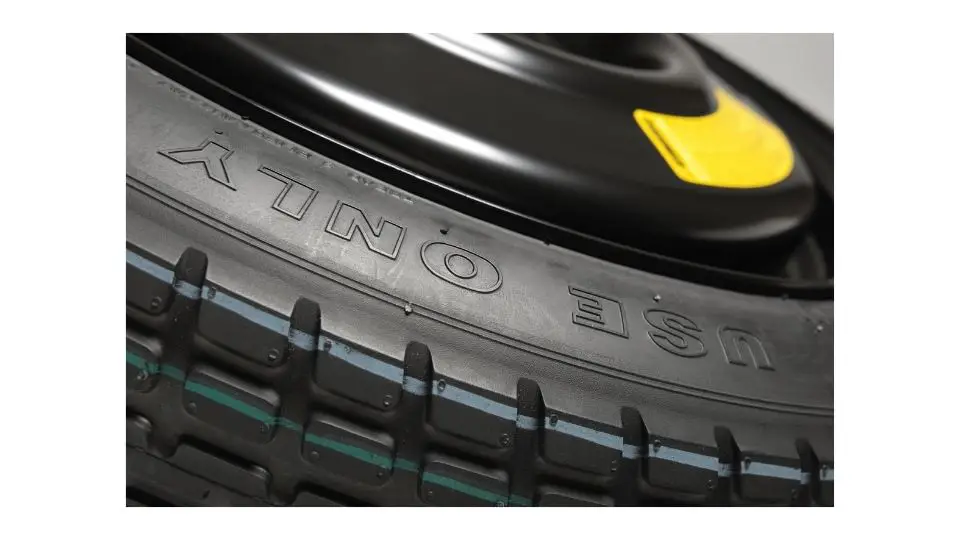BMWs have a lot of great things going for them – fantastic handling, luxurious interiors, and an overall good reputation among sports car enthusiasts.
However, most people overlook one important thing before buying a BMW. Ever wonder if BMWs come with spare tires? The answer will surprise you, let’s find out.
Do BMWs have spare tires?
The answer is no, BMWs don’t come with spare tires and the reason for that is the fact that they use run-flat tires instead of regular ones.
This means there is no need for a spare tire since run-flat tires can be driven on for up 50 miles which means if your BMW tire goes flat, you can still drive your car until you get to the nearest tire shop or home.
This is great because it means you don’t have to worry about getting stranded on the side of the road and having to wait for hours for a tow truck.
BMW Runflat Tires Explained
BMW run-flat tires are a special type of tire designed to remain inflated for many miles even after being punctured.
The technology used to manufacture these tires is not new, but it has become increasingly popular in recent years. This is mainly because some people believe that the benefits far outweigh any drawbacks they may have.
Offers optimum comfort, safety, and rolling resistance
Run flat tires typically offer better comfort than ordinary tires because they do not need to be aired up regularly. They also provide excellent safety by allowing you to continue driving in case of a puncture without worrying about sudden deflation or damage to the vehicle. But perhaps their most important feature is that they provide superior rolling resistance compared to ordinary tires.
BMW Runflat tires are also an integral component of the BMW Efficiency Dynamics system that was introduced in 2007 as part of BMW’s efforts to make its cars more environmentally friendly and efficient.
How do I know if my BMW tires are Run-flats?
There are a few ways you can tell if your BMW has run flat tires.
The most obvious way is to see the markings on the tire itself. Most tires will have a marking that says ROF “Run on Flat” or “REM” (which stands for Run-Flat Mobility Technology). This is the easiest way to determine if your BMW has run flat tires. If you’re unsure if you have run flat tires, check with an authorized BMW service center near you.
Another way is to look for a sticker on the inside of your vehicle’s trunk lid or rear bumper. The sticker will be located on either side of your tailgate or trunk lid and will have a symbol of two wheels with a circle around them with an image of a tire in between them. This is also another easy way to determine whether or not your BMW has run flat tires.
Can I replace my BMW run-flat tires with regular tires?
Yes, you can use regular tires on your run-flat-equipped BMW. But, there are some things to keep in mind. If you have a BMW equipped with run-flat tires, you should know that they’re not designed to last forever.
They’re designed to help you get to safety if your tires lose pressure due to a puncture or other damage. Run-flats are not intended for long-term use and the sidewalls will eventually wear out when used as regular tires.
Run-flat tires are also different than standard tires in terms of handling and ride comfort. Run-flats have stiffer sidewalls and may be slightly noisier than their non-run-flat counterparts.
If you decide to replace your run flats with standard tires, be prepared for an increase in road noise and possibly a stiffer ride quality as well.
What kind of spare tires does a BMW have?
All BMWs come with run flat tires as standard equipment. The only thing you need to do is check your owner’s manual to find out how much distance you can travel before they need to be replaced.
Some cars require only 10 miles, while others require 50 or more. BMW also offers an optional roadside assistance program that will provide you with everything from gas and oil changes to tire changes and battery jumps if your car breaks down, no matter where it happens.
How long do BMW tires last?
It’s common for a set of tires to last between 25,000 and 30,000 miles on a BMW vehicle. However, factors such as driving habits and road conditions can impact this mileage estimate by a few thousand miles either way.
For example: If you drive primarily around town with frequent stops and starts, your tires will wear out faster than they would if you drove mostly highway miles at higher speeds.
This is because more braking causes premature wear on the inner linings of the tire while extended periods at low speeds increase heat buildup inside the tire (which slows down overall tread wear).
Conclusion
If you own a BMW, then this question likely means nothing to you. However, if you are new to the BMW world, then it’s important to know that every BMW was originally manufactured with run-flat tires.
Sources:
https://www.edmunds.com/driving-tips/run-flat-tires-a-primer.html
https://www.press.bmwgroup.com/global/article/detail/T0307141EN/the-efficient-dynamics-success-story:-bmw-writes-the-next-chapter?language=en#:~:text=With%20the%20introduction%20of%20its,automotive%20industry%20to%20this%20day.

